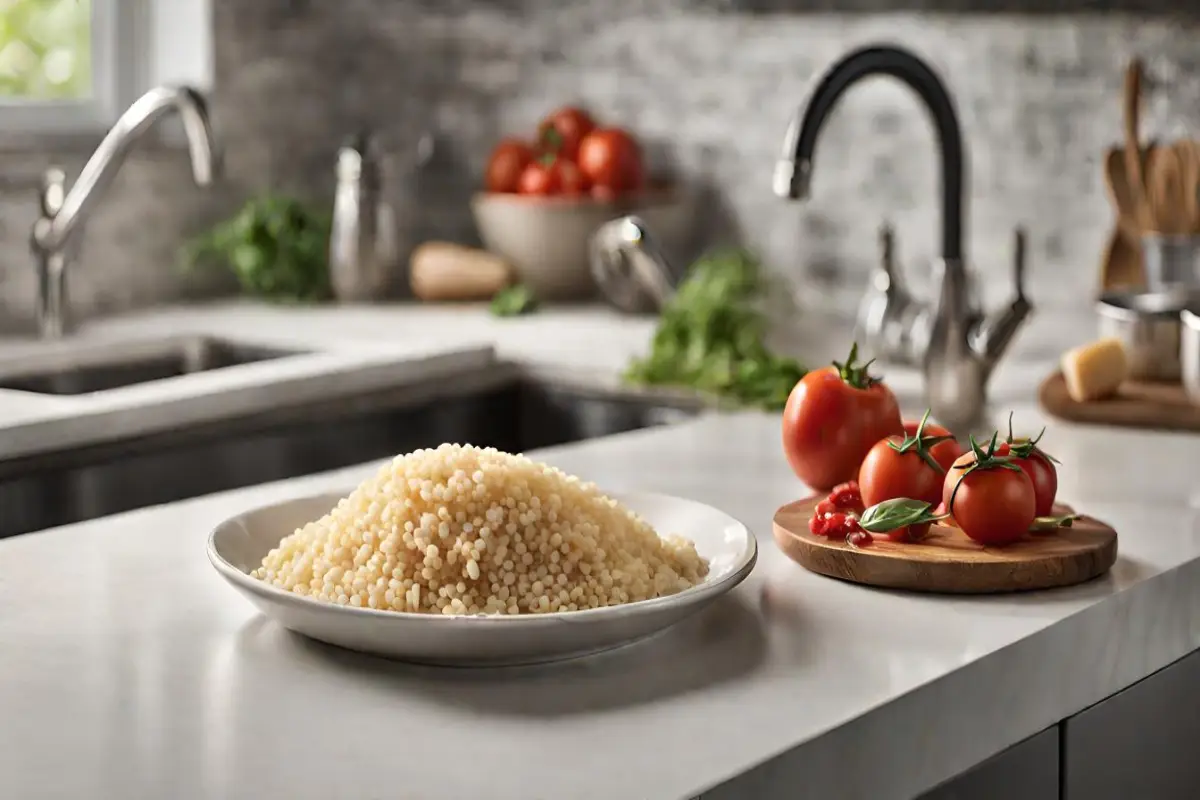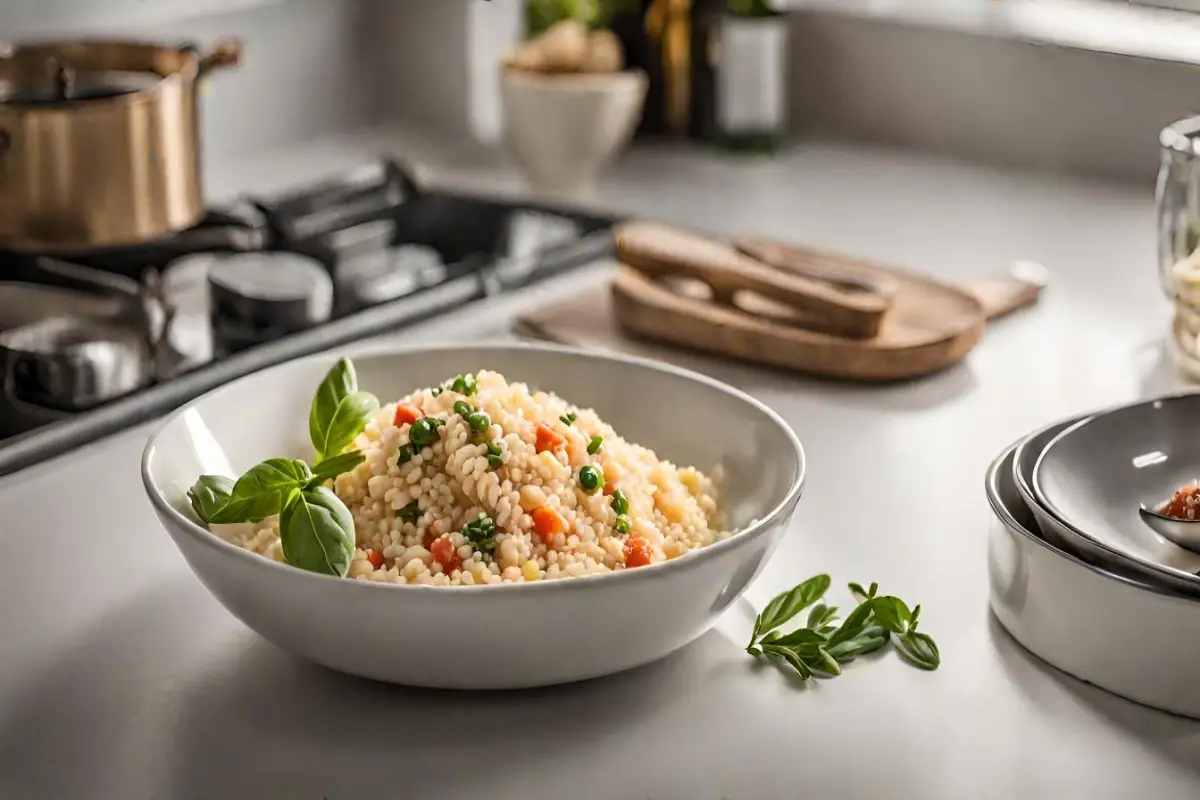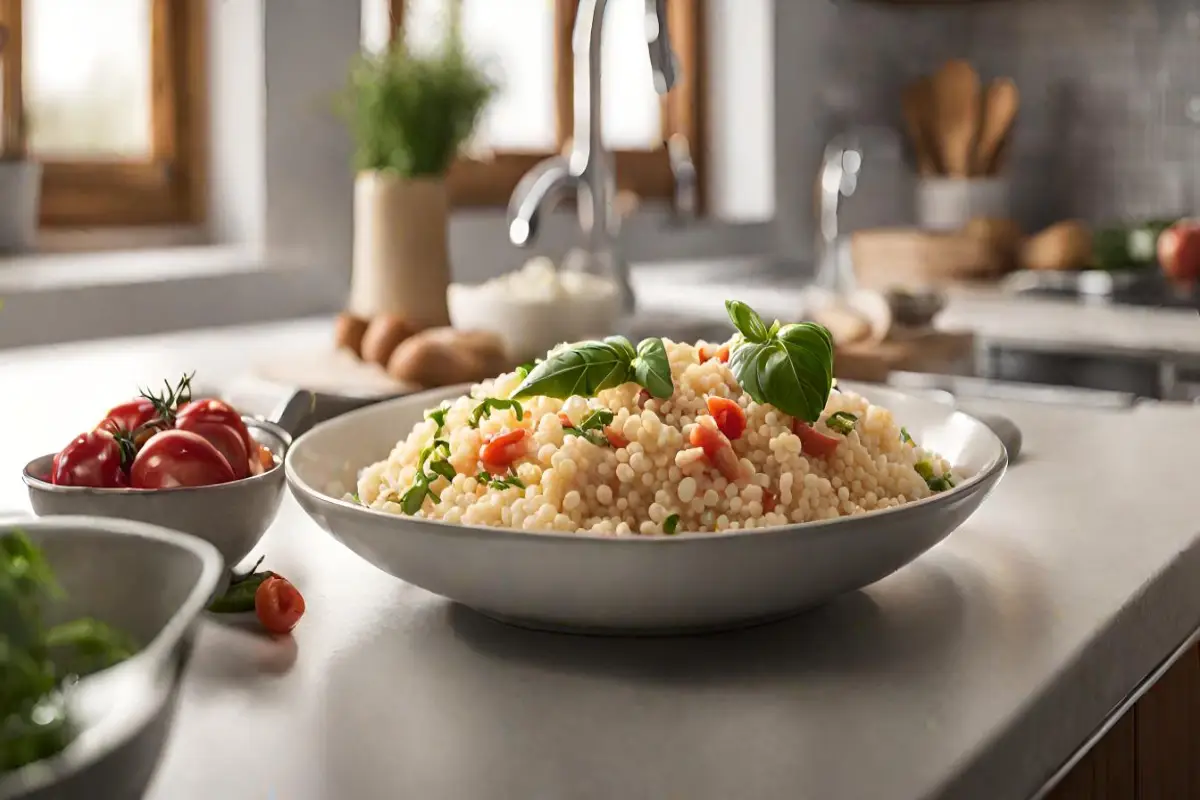Pastina, a tiny star-shaped pasta, is a beloved staple in many homes. More than just a comforting childhood memory, it’s a nutritional powerhouse, representing the health benefits of pastina in every bite. This simple ingredient is not only a part of many cozy meals but also plays a significant role in health and wellness. In this article, we explore pastina’s journey, highlighting its health benefits and comforting role during illness. We also examine its place in traditional cooking.
This humble pasta is surprisingly rich in nutrients, embodying the health benefits of pastina. It’s a key part of a balanced diet. In this comprehensive guide, we uncover pastina’s various roles. From a comforting bowl during sick days to its nutritional value, we cover it all. Join us as we dive into the world of pastina. We’ll answer important questions for anyone who has ever enjoyed this delightful pasta, focusing on the many ways it enhances health and well-being.
The Comforting Power of Pastina: More Than Just a Food
Pastina in the Heart of Comfort Cooking
Pastina, nestled in the world of comfort foods, stands out for its unique appeal. It’s not just a dish; it’s a symbol of homely warmth and care. This tiny pasta is a staple in comforting recipes, especially in traditional Italian penicillin soup. These soups, enriched with pastina, are more than just nourishing meals. They are a testament to the healing power of simple, wholesome ingredients.
The Healing Tradition of Italian Penicillin Soup
Italian culinary traditions deeply cherish the concept of food as medicine. Pastina plays a crucial role in these traditions. It’s often the main ingredient in Italian penicillin soup, a healing broth revered for its restorative properties. This soup, with pastina at its core, is not just nourishment. It’s a remedy passed down through generations, offering both physical comfort and emotional solace.
Pastina’s Role in Soothing and Nourishment
The role of pastina in Italian penicillin soup extends beyond its texture. It absorbs the flavors of herbs and broths, becoming a vehicle for health-boosting ingredients. Its gentle nature makes it suitable for all, from the young to the elderly. In every spoonful of soup with pastina, there’s a blend of tradition, comfort, and nutrition.
Nutritional Profile of Pastina: What Makes It Special
A Rich Source of Essential Nutrients
Pastina, though small in size, is mighty in nutrition. It’s a good source of carbohydrates, providing the body with much-needed energy. To further understand the role of carbohydrates in a healthy diet, read about the benefits of whole grains. This pasta also contains essential vitamins and minerals. These include B-vitamins for energy metabolism and iron for healthy blood cells. Its composition makes it an ideal food for sustaining energy levels throughout the day.
Low in Fats, High in Comfort
One of the key advantages of pastina is its low-fat content. This makes it a heart-healthy choice for those monitoring their fat intake. The simplicity of pastina also means it’s easy to digest. This is especially important for people with sensitive stomachs or during illness. Its comforting texture and ease of digestion make it a go-to food for gentle nourishment.
Dietary Flexibility of Pastina
Pastina’s versatility extends to its suitability in various diets. It can be a part of gluten-free, vegetarian, and vegan diets when made with appropriate ingredients. This flexibility ensures that pastina can be enjoyed by a wide range of individuals, catering to different dietary needs and preferences.
In the next section, “Pastina in Traditional Healing and Cuisine,” we’ll explore how pastina fits into the broader context of cultural cooking and its role in traditional remedies.
Pastina in Traditional Healing and Cuisine
Ideal for Sensitive Stomachs and Recovery
Pastina is widely recognized for its gentle nature, making it an ideal choice for sensitive stomachs. During times of illness or digestive discomfort, it offers a soothing, easily digestible option. This gentle quality is particularly beneficial for those recovering from stomach ailments or undergoing medical treatments that affect the digestive system.
A Comforting Choice During Illness
Moreover, the soft texture and simple composition of pastina make it a comforting choice during illness. It’s easy on the stomach and can be a soothing meal when heavier, more complex foods might be hard to digest. Consequently, pastina is often a go-to food for those feeling unwell, offering both physical ease and a sense of comfort.
Pairing with Digestion-Friendly Ingredients
Additionally, pastina pairs well with other digestion-friendly ingredients. It can be combined with broths, mild vegetables, and lean proteins to create balanced, nutritious meals. These combinations are not only easy to digest but also provide the necessary nutrients to aid in recovery and maintain overall health.
Cooking with Pastina: Tips and Wholesome Recipes
Easy Preparation for Any Meal
Pastina’s charm lies in its simplicity and ease of preparation. Whether you’re a novice cook or a seasoned chef, cooking pastina is straightforward and quick. Start by boiling it in water or broth until tender, which usually takes just a few minutes. This simplicity makes pastina an excellent choice for quick, nutritious meals.
Versatile Recipes for Health and Comfort
Pastina’s versatility shines in a variety of recipes. It can be the star in a comforting soup, tossed with vegetables for a light salad, or even mixed with a little cheese and butter for a simple yet satisfying dish. Here are a couple of wholesome recipes to get you started:
- Healing Pastina Soup: Begin with a base of chicken or vegetable broth. Add cooked pastina, some finely chopped vegetables like carrots and celery, and a sprinkle of herbs for a soothing soup.
- Pastina Salad with Fresh Veggies: Toss cooked pastina with diced tomatoes, cucumbers, a splash of olive oil, lemon juice, and a pinch of salt for a refreshing and healthy salad.
For more ideas on incorporating whole grains into your diet, explore these tips.
Tailoring Pastina to Dietary Needs
Pastina can easily be adapted to meet various dietary requirements. Gluten-free pastina is available for those with gluten sensitivities. For a vegetarian or vegan version, use plant-based broths and add your favorite veggies.
Pastina vs. Other Comfort Foods: A Healthy Comparison
Nutritional Superiority of Pastina
When it comes to comfort foods, pastina stands out for its nutritional profile. Unlike many other comfort foods that are often high in fats and sugars, pastina is low in fat and contains beneficial nutrients. It offers a healthier alternative without compromising on the comfort factor.
Digestibility and Versatility
Pastina also excels in its digestibility compared to other heavier comfort foods. It’s gentle on the stomach, making it a suitable option for people of all ages, including children and the elderly. Furthermore, its versatility allows it to be incorporated into various healthy dishes, unlike many other comfort foods that are limited in their culinary uses.
Balancing Comfort with Health
While indulgent comfort foods have their place, pastina provides a balance between comfort and health. It can be prepared in ways that satisfy cravings without the guilt associated with more indulgent options. This balance makes pastina a unique and valuable addition to any diet.
Pastina for Everyone: A Cross-Generational Comfort
A Food for All Ages
Pastina’s universal appeal lies in its suitability for all age groups. For infants and young children, it’s often one of the first solid foods introduced due to its soft texture and ease of digestion. Its simple, gentle nature makes it ideal for older individuals or those with sensitive digestive systems.
Bringing Families Together
Pastina also plays a role in family meals and gatherings, acting as a bridge across generations. It’s a common ingredient in dishes that bring people together, creating a sense of unity and shared culinary heritage. This aspect of pastina adds to its emotional value, making it more than just a food item.
Adapting Pastina for Different Dietary Needs
Furthermore, pastina’s versatility allows it to be adapted for various dietary preferences and restrictions. Whether it’s a gluten-free version for those with allergies or a vegan variant for plant-based diets, pastina can be modified to suit everyone’s needs, ensuring that no one misses out on its comforting embrace.
FAQs: Understanding Pastina’s Role in Wellness
Is Pastina Good When You’re Sick?
Yes, pastina is an excellent choice when you’re sick. Its soft texture and ease of digestion make it ideal for those with a weakened appetite or stomach upset. Pastina can provide energy without overburdening the digestive system, making it a go-to food for recovery.
Is Pastina a Healing Food?
While pastina itself doesn’t cure illnesses, its composition supports gentle nourishment and comfort, aiding in the healing process. It’s often included in diets for convalescence and is a key ingredient in traditional healing soups like Italian penicillin soup.
Is Pastina Good for an Upset Stomach?
Absolutely. Pastina’s simplicity and mild nature make it suitable for upset stomachs. It’s gentle and easy to digest, offering a soothing option for those with digestive discomfort.
How Many Calories Are in Pastina?
The calorie content in pastina varies slightly depending on the brand and preparation. Generally, a serving of cooked pastina (about 1 cup) contains around 200 calories. It’s a good source of energy while being relatively low in calories, fitting well into a balanced diet.
Conclusion: Embracing the Health Benefits of Pastina
Pastina is not just a nostalgic childhood food; it’s a versatile, nutritious, and comforting ingredient with a place in everyone’s kitchen. From its role in traditional healing soups to its suitability for sensitive stomachs and its universal appeal across generations, pastina stands out as a wholesome choice. Whether you’re seeking comfort during an illness or looking for a nutritious ingredient to add to your meals, the health benefits of pastina offer a perfect blend of health and comfort. Understanding the benefits of a balanced diet can further highlight the role of pastina in maintaining good health.
Embrace the simplicity and wellness that the health benefits of pastina bring to the table. It’s a testament to the power of humble ingredients in creating meals that nourish both the body and soul.




